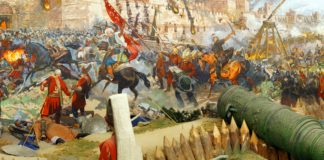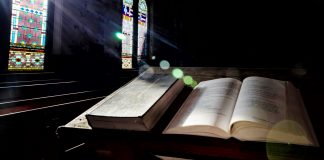Franz Hasel | The guardian angel’s weapon
In the most difficult moments of his life, Franz Hasel prayed: “Lord, if I am attacked, I will have no way to defend myself. I must trust in You to be my protector. My life is in Your hands.”
Brethren Assemblies | The history of the Brethren
The history of Brethren Assemblies begins in the 19th century, when groups of British believers began to be dissatisfied with the Anglican Church, which they saw as enslaved to the state and which they considered to be abandoning the fundamental principles of Christianity.
Puritanism in the Protestant Reformation
Less than 50 years after the supporters of Martin Luther’s ideas in Germany were mockingly called “Lutherans,” England was in its turn discovering a derogative nickname—“Puritans”—which it applied to a category of Christians who disturbed the ordinary life of the English church and society.[1]
The Pentecostal movement: Pentecostalism and the Reformation
Pentecostalism has its origin in the Greek word Pentecost, which means “fifty” and refers to the receiving of the Holy Spirit by the apostles on the feast of Pentecost in Jerusalem, followed by speaking in tongues (glossolalia). However, this Pentecostal phenomenon predates the Pentecostal movement which began at the beginning of the 20th century.
The Baptist Church
The Baptist Church has made significant contributions to religious life by embracing the principle of separation of church and state and the principle of religious freedom.
Seventh-day Adventists | Adventism
Seventh-day Adventists have the deep conviction that Jesus Christ will soon return, and the desire to keep His commandments as they were originally written in the Decalogue.
On the banks of a river where no one had ever been
Jim Elliot was 25 years old when he headed to Ecuador as a result of the answer he sought from God regarding his future.
The Anabaptist creed: The price of the Reform carried to the end
The Anabaptist creed emphasised the premise that Bible truth was accessible even to secular readers and listeners, who had a rudimentary education.
Fighting over the West: Orthodoxy, Protestant Reformation, and Catholicism
At the beginning of the 15th century, the threat of the Ottoman Empire to Eastern Europe was a painful certainty. The last Byzantines, aware of the ensuing disaster, called on Western aid, seeking political union with the Roman Catholic Church.
Louis Braille | The blind man who opened their eyes
Louis Braille said: "God was pleased to hold before my eyes the dazzling splendours of eternal hope. After that, doesn't it seem that nothing could keep me bound to the earth?"
How to build (and how to dilute) a biblical worldview
According to a Barna Group poll, only 6% of Americans have a "biblical worldview", the percentage rising to just 21% for those who regularly attend evangelical churches. This shows that fewer and fewer Christians are turning to Scripture to answer the questions they face.
The faith of a surgeon
Broken blade. Shaking hands. Clouded mind. “I could have killed him.”
The emancipation of a free man
Louis Zamperini experienced the bizarre smell of death so many times that he came to the verge of losing his mind. However, he survived, and by choosing to forgive the unforgivable, he was able to breathe life into an entire world.
Pietism within the Protestant Reformation
Pietism was a movement of spiritual revival that took place between the seventeenth and nineteenth centuries mainly in Germany and Bohemia.
The secularization of Christmas
Although the holiday of Christmas does not have a biblical origin and did not exist in the days of the early church, most Christians around the world keep it as a reminder of the miracle of Jesus Christ’s birth. However, the religious significance of the holiday is waning in the Western world, as the number of church members decreases and Bible illiteracy increases.


























